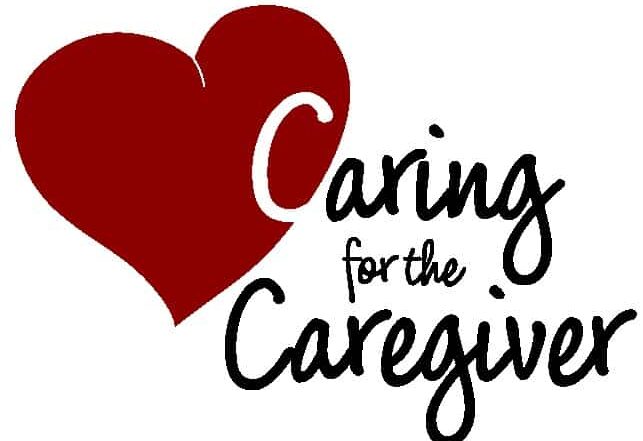Nothing is more challenging than watching your child suffer. Caring for a child with autism can stress parents beyond their limits. If your child’s disorder makes you feel highly stressed, you are not alone. In the following article, Jane Johnson investigates parental stress in response to children with autism.
In a 2013 article in the Atlantic, Kara Margolis, MD, a gastroenterologist at Columbia University, commented that by the time she met a little boy with autism who suffered from extreme stomach aches, “bloody scabs dotted his face, from the tender skin below his eyes to the tips of his ears. He’d chewed his thumb down nearly to the bone. There was blood everywhere”.
Surely this boy’s parents felt extreme stress watching him suffer, and while his physical symptoms are at the extreme end, they are not unknown in this population. I believe that an important, overlooked factor contributing to stress levels in parents of children with autism spectrum disorder (ASD) is the degree to which they feel their child suffers, per the old maxim, supported by Fingerman (2011), that “you’re only as happy as your least happy child.”
In a survey of 219 parents of children with autism, Sharpley, et al. (1997), found that more than 80% reported sometimes being “stretched beyond their limits,” with mothers reporting higher stress levels than fathers. The authors commented that the three most stressful factors are
(a) concern over the permanency of the condition;
(b) poor acceptance of autistic behaviors by society and, often, by other family members;
(c) the very low levels of social support received by parents. Subjective parental pain and consequent stress went unobserved.
When Dabrowska (2010) administered the Questionnaire of Resources and Stress (QRS) to 162 parents of preschool children with autism, she correctly predicted that the level of stress would be higher in parents of children with autism than in parents of children with Down’s syndrome or in typically developing children. Parents of children with autism also scored higher than Down’s parents on three QRS scales (e.g., limits on family opportunities), and higher than parents of typically developing children, on nine out of eleven scales. As well, she found that mothers of children with ASD felt more stress than fathers, but, interestingly, she did not find this problem in either the Down’s or the typically developing population.
Estes et al. (2009) investigated how child characteristics influence maternal parenting stress and psychological distress. Participants were mothers of preschool-aged children with ASD and mothers of children with DD (developmental delay without autism). Evidence for higher levels of parenting stress and psychological distress was found in mothers in the ASD group, and children’s problem behavior was associated with increased parenting stress and psychological distress in mothers in both groups.
Schieve, et al. (2007) studied the 2003 National Survey of Children’s Health, in which parents or other caregivers for children with ASD reported their recent feelings about their life sacrifices to care for their child, their difficulty caring for their child, their frustration with their child’s actions, and their anger toward their child. Responses were compiled using the Aggravation in Parenting Scale. Parents of children with autism were compared with parents of children with special health-care needs with other developmental problems, children with special health-care needs without developmental problems, and developmentally normal children. Parents of children with autism were significantly more likely to score in the “high aggravation” range than any other parent sample.
From the published literature we know that parents of children with autism worry about everything from lifetime dependency to family disharmony, from support networks to societal acceptance; we know that these parents are aggravated and angry, and that the parents of children with more aberrant behaviors feel more stressed than parents of children with fewer aberrant behaviors. No mention is made anywhere, however, of the possibility that parental emotional pain might be linked to subjective perceptions of pain as experienced by one’s child.
The Questionnaire on Resources and Stress (Holroyd, 1987) is a self-report questionnaire that consists of 15 scales, including parental affliction, overprotection/dependency, pessimism about child development, anxiety about the future of the child, financial problems, social isolation, burden for members of the family, intellectual and physical incapacitation, and need for the care of the child. Parents rate their agreement or disagreement on a four-point scale with questions that assess parental feelings about their child (e.g., “I worry about what will happen to my child when I can no longer take care of him/her,” and “I have difficulty leaving the house because of my child.”).
Another commonly used measure of stress is the Parenting Stress Index (PSI; Abidin, 1983), which is organized into 120 questions, comprising seven sub-scales assessing the degree to which parents are depressed, are unattached to the child, feel restricted by their role as parents, feel incompetent as parents, are socially isolated, have struggled to maintain a satisfactory relationship with their spouse, and are experiencing health problems. It contains prompts like: “Think carefully and count the number of things your child does that bother you,” and, “My child rarely does things for me that make me feel good.” Like the QRS, it contains no questions that probe whether or not parents might feel stress when they watch their child suffer.
The high cost of poor outcomes in families with autism, and our moral obligation as a society to care for those who are suffering, dictate that we must understand the nuances of the effects of the syndrome, both on people with autism and on their families and caregivers, and provide appropriate interventions. Further research is needed to determine that appropriate healthcare does in fact improve HRQoL, reduce the staggering financial costs, and reduce parental stress.
Getting appropriate care and treatment for your child may help alleviate their symptoms and reduce your overall stress. When a child with autism has a trusted care team, parents can feel more confident that the child is being taken care of.
Remember to care for yourself as well. Parents should seek out appropriate physical and mental health care for themselves so that they can continue to be advocates for their children.
This editorial appeared in its entirety in Autism Research Review International (ARRI) – ARI’s printed newsletter.
Could treating moms’ periodontal disease lower odds of autism?
Mothers who receive periodontal treatment during pregnancy may reduce the odds of their children developing autism spectrum disorders (ASD), according to a new study. Carl Bose and colleagues collected data on 306
Parents and Caregivers: The Importance of Self-Care
“If you are an exhausted or overwhelmed caregiver, this presentation is for you.” Amanda Tami, LPC, BCBA, discusses the importance of self-care for adult caregivers supporting people with special needs, including autism. She
Gender diversity more common in kids with ASD than in neurotypical peers
Gender diversity is more common among children with autism spectrum disorders (ASD) than among their neurotypical peers, according to a new study. Previous research has shown that the rate of gender diversity
ARI’s Global Networks
ARI and Autism Research The Autism Research Institute (ARI) was established in 1967 and is the oldest autism research organization in the world. Its founder, Dr. Bernard Rimland, was a pioneering researcher
Transportation issues rarely addressed by providers
Very few medical or behavioral specialists discuss driving or other transportation-related issues with patients who have ASD (autism spectrum disorders), according to a new study. Emma Sartin and colleagues surveyed 78 providers,
Pregnancy spacing may affect odds of ASD
Mothers of children with autism spectrum disorders (ASD) may reduce their odds of having another child with ASD if they time a second pregnancy to occur 2.5 to 3 years after the







